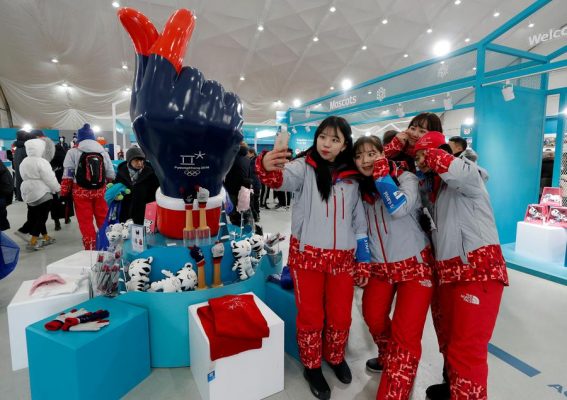
GANGNEUNG, South Korea – Some volunteers are former athletes, some are doctors, one is a small-town mayor. They come from all over the world – Russia, China, the United States. The oldest is 88.
But the vast majority of volunteers in Pyeongchang are young Korean women.
There are thousands of them who do thousands of jobs, largely removed from the glamour of the Olympic spectacle: They direct traffic, help confused fans find their buses, shiver in security booths in the frigid cold. They save the Olympics millions of dollars in labor costs.
To Shin Haeun, a 20-year-old college student in Seoul, it is payment enough to stand for a few seconds within spitting distance of history, to meet people and experience things that might cause her to see the world differently than she did before.
In the 2010 Olympics, 57 percent of volunteers were women. That rose to 70 percent during the Sochi games in 2014. In South Korea, where young men face mandatory military service, 78 percent of people who applied to be volunteers were women, according to the local organizing committee.
In the early days of the games, local media reports were filled with stories of disgruntled volunteers leaving early. Their complaints included shoddy living conditions, bad food, cold showers and being left in the subzero weather waiting indefinitely for the bus to shuttle them to crowded dormitories hours away.
The organizing committee apologized and promised to treat their free labor better.
An Norovirus outbreak swept through the games, infecting dozens of volunteers and leaving others in quarantine. And still more than 14,000 volunteers trudged on through the games, through the cold and the long drives on shuttle buses and occasional bouts of abuse.
Shin’s team at the Gangnueng Oval guards a gate that blocking a short stretch of the hallway circling the arena, where they park the Zambonis. The job of these young women is to stop anyone who tries to pass, and tell them they have to turn and walk all the way around the other way. It’s a 20-minute inconvenience for athletes, photographers and executives in a hurry to get where they need to be.
Many get angry. Some scream.
“I’m so sorry, you can’t come through here,” 22-year-old Lucy Hwang has said again and again, every night for weeks.
One executive, his temper flaring, began berating her, taking photographs of her badge and insisting he’d get her in trouble, in this job that she does for free.
Her manager chased the man down and he promised he’d come to apologize, but he never did. Hwang went home early that night. When she returned, she told them she didn’t want to guard the gate anymore, and they agreed.
One-time experience
Hwang grew up here in Gangwon Province, a rural, down-on-its-luck former coal mining community that launched a yearslong bid for the Olympics in an effort to remake itself as an international winter sports destination.
Hwang loves that people can spot the volunteers because of their loud and matching uniforms.
“It’s what we’ve been longing for a long time,” she said. “The Olympics, it’s a one-time experience in your life. That’s a cliche. But it’s true. I will never be at an Olympics in my town again.”
Exactly 30 years ago, Lucy Hwang’s mother was her age and volunteered for the Olympics in Seoul.
“My mom was like, ‘Oh, my God, I’m having two Olympics in one life. And you should volunteer because I would again, but I’m too old now,” Hwang said. “She says, ‘I had Seoul, now you have Pyeongchang.'”


